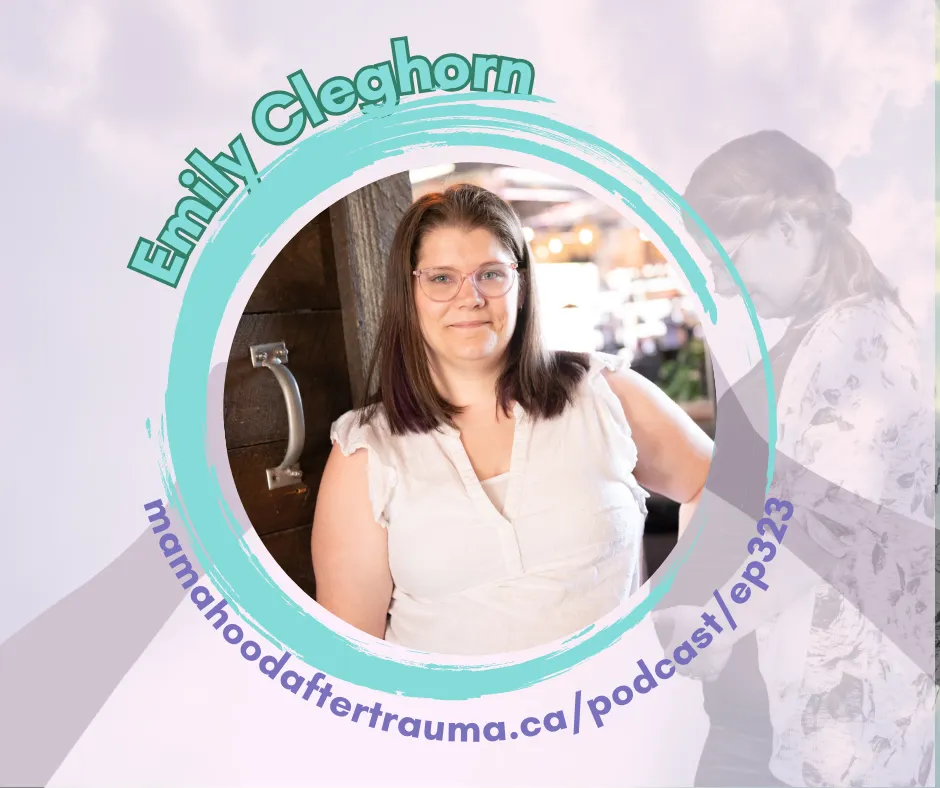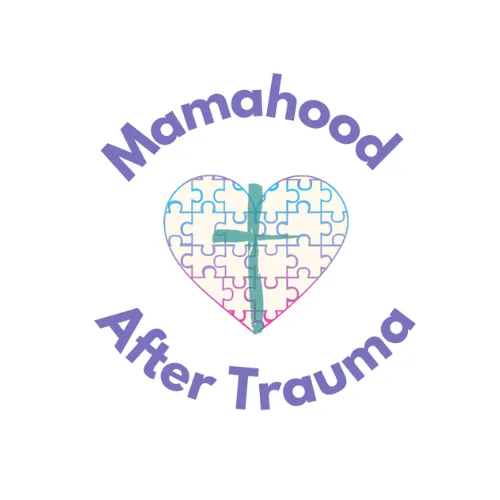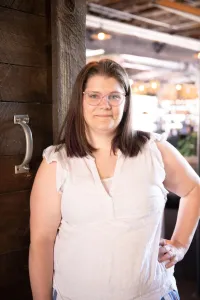
Discover a sanctuary for healing and growth in motherhood with the Mamahood After Trauma Podcast hosted by Emily Cleghorn. Dive into candid discussions and practical tips on parenting amidst trauma recovery.
Join Emily and her guests as they navigate the complexities of raising children while prioritizing personal healing. Find solace, strength, and joy in the beautiful chaos of mamahood after trauma.
Listen now!
Featured Posts

3 Keys for Rising from the Ashes of your Childhood Trauma

Today, I want to talk about three things, three lessons, three components that you might not realize are incredibly important to your healing journey, to rising from the ashes of your trauma.
So, let's dive right in, shall we?
The first component that really surprised me when I began my journey rising from the ashes of my trauma was I needed to have a vision. I needed to know what I wanted. And maybe... Maybe you're like me. Maybe you felt like you've had a black cloud following you around over your head all of your life.
And no matter what you did, no matter what help you sought out, the black cloud remained there. It, it stayed there regardless of what you did or what you said, or all of all of those things.
You need to have a vision. You know that you don't like your life the way that it is. You know that you don't like living your life with the black cloud over your head. But what do you want instead? What do you want instead of the black cloud? Do you want to just live your life in peace and find your group, your friend circle, your chosen family circle that Loves and accepts you for who you are.
Do you want to create an opposite childhood for your kids than the one that you experienced growing up?
You need to know what it is that you want. It's kind of like reverse engineering. Well, it is it's reverse engineering your life. Start with a goal in mind. You know that you don't like where you're at now, but where do you want to be? That's step one.
Step the second thing is you need to believe in yourself.
Believing in yourself is so immensely important. massively, tremendously important.
I've said this so many times to so many clients on so many different training videos that it's great. If you have a significant other that believes in you, a parent, A friend. All of those things are great. But if you don't believe in you, that's the kicker. If you don't believe in you, you won't achieve what you want to achieve.
That vision, that dream life, isn't going to happen because you don't believe that you can achieve it. And nobody else... can create your dream life for you. And when I say believe in yourself, I'm not talking about becoming self centered
and self reliant. That's not what I'm talking about. I'm talking about mending your crushed spirit. I'm talking about flipping the beliefs of, I'm not good enough, I'm a waste of space, I'm not lovable, I'm not worthy of goodness, and turning that around. You don't need to be selfish and self centered to heal.
In fact, I'm probably betting that you, as a trauma survivor, as a trauma surviving mama, are not self centered. You don't have it in you, because your upbringing taught you to consider other people. But it also taught you to make yourself small, to minimize your, your needs. Be it emotional or physical or spiritual, and it taught you that you don't matter.
And my friend, you do matter. So believing in yourself is not an act. The way that I'm speaking of it is not an act of becoming selfish and self centered, only thinking about yourself. It's simply giving yourself due credit. You have, you are so strong. You have so much strength and resilience. You have so much to offer the world, your family, your little ones.
But if you don't see it, it's going to be hard to use it to propel you forward into the vision that you have for your life.
The third component, I guess, is what we're calling it today is Using your knowledge that you have, kind of taking a step back and looking at your life experience objectively. Yes, it hurt you, but what now, as an adult, can you, what knowledge can you gain from that experience? What do you know now about your parents?
Or your family, or maybe both that you didn't know as a child or didn't have the ability to understand as a child that you can say, okay, I know now that
maybe mom wasn't given the best upbringing and that impacted her in this way. And so she didn't understand how to be there. For me, because when you have the ability to step back and objectively look at your larger family dynamic so that you can understand how the cycle was repeated, because
I can almost guarantee you that the cycle, your childhood upbringing. Was the cycle repeating itself, and when you can acknowledge that it doesn't, it doesn't make it okay. It doesn't make it right. It doesn't invalidate your feelings or your experience, but it gives it some perspective, and it makes it makes it a bit easier to understand where it came from.
Then you're able to understand that you as a child never did anything wrong. The abuse, the neglect, whatever it was, was not your fault. And so often as little children we think that it's on us and it wasn't you, it was not you. And so now as you go on your healing journey and you can understand that it adds an element of grace, it adds an ability to begin to forgive. And I'm not saying you have to forgive.
Forgiveness, since, since I came here, I'm uh, I'm gonna address it. Forgiveness is not for the, for the abuser. It is not a get out of jail free card, so to speak-- Forgiveness is for you. It's not for the person who hurt you. It's for you. It's to set you free.
🌟👉🏼 Get your 5 Keys Here 👈🏻🌟
If you have any questions, my inbox, be it DM or email is always open.

Don't miss an episode again!
Subscribe to get updates sent to your inbox!
© Copyright Emily Cleghorn 2024


